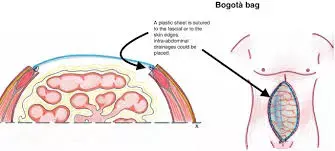- Home
- Medical news & Guidelines
- Anesthesiology
- Cardiology and CTVS
- Critical Care
- Dentistry
- Dermatology
- Diabetes and Endocrinology
- ENT
- Gastroenterology
- Medicine
- Nephrology
- Neurology
- Obstretics-Gynaecology
- Oncology
- Ophthalmology
- Orthopaedics
- Pediatrics-Neonatology
- Psychiatry
- Pulmonology
- Radiology
- Surgery
- Urology
- Laboratory Medicine
- Diet
- Nursing
- Paramedical
- Physiotherapy
- Health news
- Fact Check
- Bone Health Fact Check
- Brain Health Fact Check
- Cancer Related Fact Check
- Child Care Fact Check
- Dental and oral health fact check
- Diabetes and metabolic health fact check
- Diet and Nutrition Fact Check
- Eye and ENT Care Fact Check
- Fitness fact check
- Gut health fact check
- Heart health fact check
- Kidney health fact check
- Medical education fact check
- Men's health fact check
- Respiratory fact check
- Skin and hair care fact check
- Vaccine and Immunization fact check
- Women's health fact check
- AYUSH
- State News
- Andaman and Nicobar Islands
- Andhra Pradesh
- Arunachal Pradesh
- Assam
- Bihar
- Chandigarh
- Chattisgarh
- Dadra and Nagar Haveli
- Daman and Diu
- Delhi
- Goa
- Gujarat
- Haryana
- Himachal Pradesh
- Jammu & Kashmir
- Jharkhand
- Karnataka
- Kerala
- Ladakh
- Lakshadweep
- Madhya Pradesh
- Maharashtra
- Manipur
- Meghalaya
- Mizoram
- Nagaland
- Odisha
- Puducherry
- Punjab
- Rajasthan
- Sikkim
- Tamil Nadu
- Telangana
- Tripura
- Uttar Pradesh
- Uttrakhand
- West Bengal
- Medical Education
- Industry
Skin-only closure bests Bogota bag techniques for Temporary abdominal closure among patients with abdominal trauma: Study

Skin-only closure bests Bogota bag techniques for Temporary abdominal closure among patients with abdominal trauma suggests a new study published in the BMC Surgery.
Temporary abdominal closure (TAC) techniques are essential in managing open abdomen cases, particularly in damage control surgery. Skin-only closure (SC) and Bogota bag closure (BBC) are commonly used methods for TAC, but their comparative effectiveness in achieving primary fascial closure (PFC) remains unclear. The objective of this study was to evaluate the rates of PFC between patients undergoing SC and BBC techniques for TAC in peritonitis or abdominal trauma cases at a tertiary care hospital. A retrospective cross-sectional study was conducted at the Surgical A Unit of Hayatabad Medical Complex, Peshawar, from January 2022 to July 2023. Approval was obtained from the institutional review board, and patient consent was secured for data use. Patients undergoing temporary abdominal closure using either skin-only or Bogota bag techniques were included. Exclusions comprised patients younger than 15 or older than 75 years, those with multiple abdominal wall incisions, and those with prior abdominal surgeries. Data analysis utilized SPSS version 25. The study aimed to assess outcomes following damage control surgery, focusing on primary fascial closure rates and associated factors. Closure techniques (skin-only and Bogota bag) were chosen based on institutional protocols and clinical context. Indications for damage control surgery (DCS) included traumatic and non-traumatic emergencies. Intra-abdominal pressure (IAP) was measured using standardized methods. Patients were divided into SC and BBC groups for comparison. Criteria for reoperation and primary fascial closure were established, with timing and technique determined based on clinical assessment and multidisciplinary team collaboration. The decision to leave patients open during the index operation followed damage control surgery principles. Results: A total of 193 patients were included in this study, with 59.0% undergoing skin-only closure (SC) and 41.0% receiving Bogota bag closure (BBC). Patients exhibited similar demographic characteristics across cohorts, with a majority being male (73.1%) and experiencing acute abdomen of non-traumatic origin (58.0%). Among the reasons for leaving the abdomen open, severe intra-abdominal sepsis affected 51.3% of patients, while 42.0% experienced hemodynamic instability. Patients who received SC had significantly higher rates of primary fascial closure (PFC) compared to BBC (85.1% vs. 65.8%, p = 0.04), with lower rates of fascial dehiscence (1.7% vs. 7.6%, p = 0.052) and wound infections (p = 0.010). Multivariate regression analysis showed SC was associated with a higher likelihood of achieving PFC compared to BBC (adjusted OR = 1.7, 95% CI: 1.3–3.8, p < 0.05). In patients with peritonitis or abdominal trauma, SC demonstrated higher rates of PFC compared to BBC for TAC in our study population. However, further studies are warranted to validate these results and explore the long-term outcomes associated with different TAC techniques.
Reference:
Zahid, M.J., Hussain, M., Kumar, D. et al. A descriptive analysis of skin-only closure and Bogota bag techniques for achieving complete fascial closure in damage control abdominal surgery. BMC Surg 24, 192 (2024). https://doi.org/10.1186/s12893-024-02484-2
Keywords:
Skin-only, closure, bests, Bogota, bag, techniques, Temporary, abdominal, closure, among, patients, abdominal trauma, study, Zahid, M.J., Hussain, M., Kumar, D, Temporary abdominal closure, Skin-only closure, Bogota bag closure, Primary fascial closure,Peritonitis,Abdominal trauma
Dr. Shravani Dali has completed her BDS from Pravara institute of medical sciences, loni. Following which she extensively worked in the healthcare sector for 2+ years. She has been actively involved in writing blogs in field of health and wellness. Currently she is pursuing her Masters of public health-health administration from Tata institute of social sciences. She can be contacted at editorial@medicaldialogues.in.
Dr Kamal Kant Kohli-MBBS, DTCD- a chest specialist with more than 30 years of practice and a flair for writing clinical articles, Dr Kamal Kant Kohli joined Medical Dialogues as a Chief Editor of Medical News. Besides writing articles, as an editor, he proofreads and verifies all the medical content published on Medical Dialogues including those coming from journals, studies,medical conferences,guidelines etc. Email: drkohli@medicaldialogues.in. Contact no. 011-43720751


